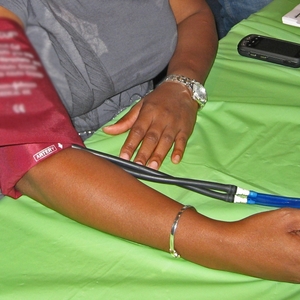MedicalResearch.com Interview with:
Prof. dr. Hans Pottel
KU Leuven Kulak
Department of Public Health and Primary Care
Belgium
MedicalResearch.com: What is the background for this study?
Response: The glomerular filtration rate (GFR) is used to diagnose patients with chronic kidney disease and is also used to adjust the dose of drugs that are eliminated by the kidneys. An accurate estimation of GFR is considered of importance in the management of kidney health in patients. In 2021 we published a
new serum creatinine based equation, called the European Kidney Function Consortium (EKFC) equation (Pottel H. et al, Development and Validation of a Modified Full Age Spectrum Creatinine-Based Equation to Estimate Glomerular Filtration Rate : A Cross-sectional Analysis of Pooled Data. Ann Intern Med (2021) 174: 183-191):
EKFC-eGFR = 107.3 / [Biomarker/Q]
a x [0.990
(Age – 40) if age > 40 years]
With a = 0.322 if Biomarker/Q is less than 1, and a = 1.132 if Biomarker/Q is 1 or more.
The equation can easily be interpreted: the leading coefficient equals the glomerular filtration rate (GFR) of 107.3 mL/min/1.73m², which is the average GFR in healthy children (aged > 2 years), adolescents and young adults. The average healthy GFR remains constant until the age of 40 years, and starts decreasing beyond that age. The GFR is inversely related to the ‘rescaled’ biomarker. The rescaling factor (Q) is the average biomarker value for healthy people of a specific population (e.g. children, adult men, adult women, white people, black people, …). Biomarker/Q equals ‘1’ for the average healthy person, corresponding with eGFR = 107.3 mL/min/1.73m² (up to 40 years of age).
It should be noted that for serum creatinine, the Q-value depends on sex and race.
Our hypothesis was that the above equation is valid for any renal biomarker, on the condition that the biomarker is appropriately scaled. We showed that the same equation was able to estimate GFR from 2 years to oldest ages.
In the current study we tested and validated our hypothesis by applying the above formula for appropriately ‘rescaled’ cystatin C.
(more…)




























 Arman A. Shahriar
Medical Student, University of Minnesota Medical School Research
Consultant, HealthPartners Institute
Minneapolis, Minnesota
Arman A. Shahriar
Medical Student, University of Minnesota Medical School Research
Consultant, HealthPartners Institute
Minneapolis, Minnesota

